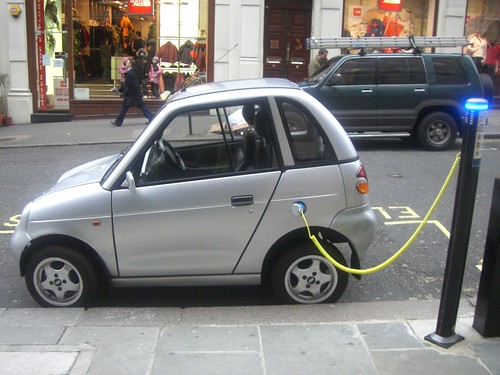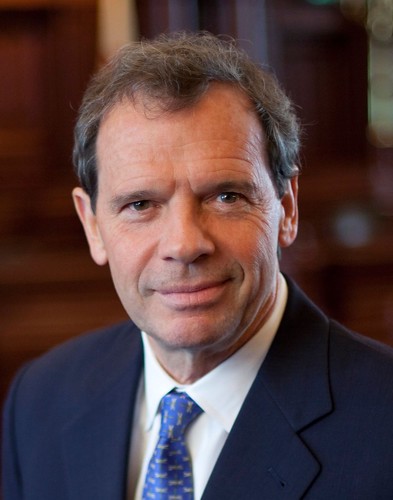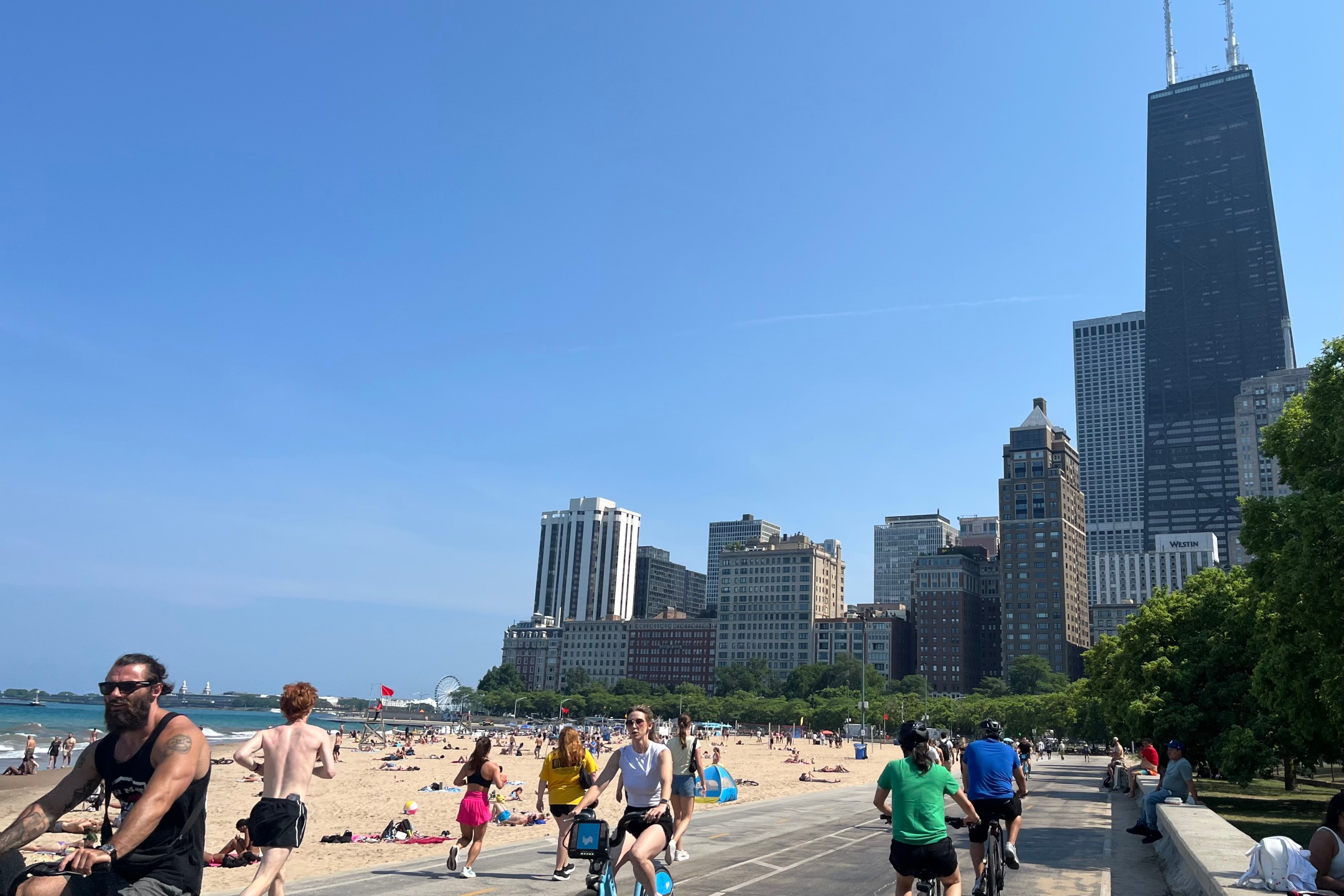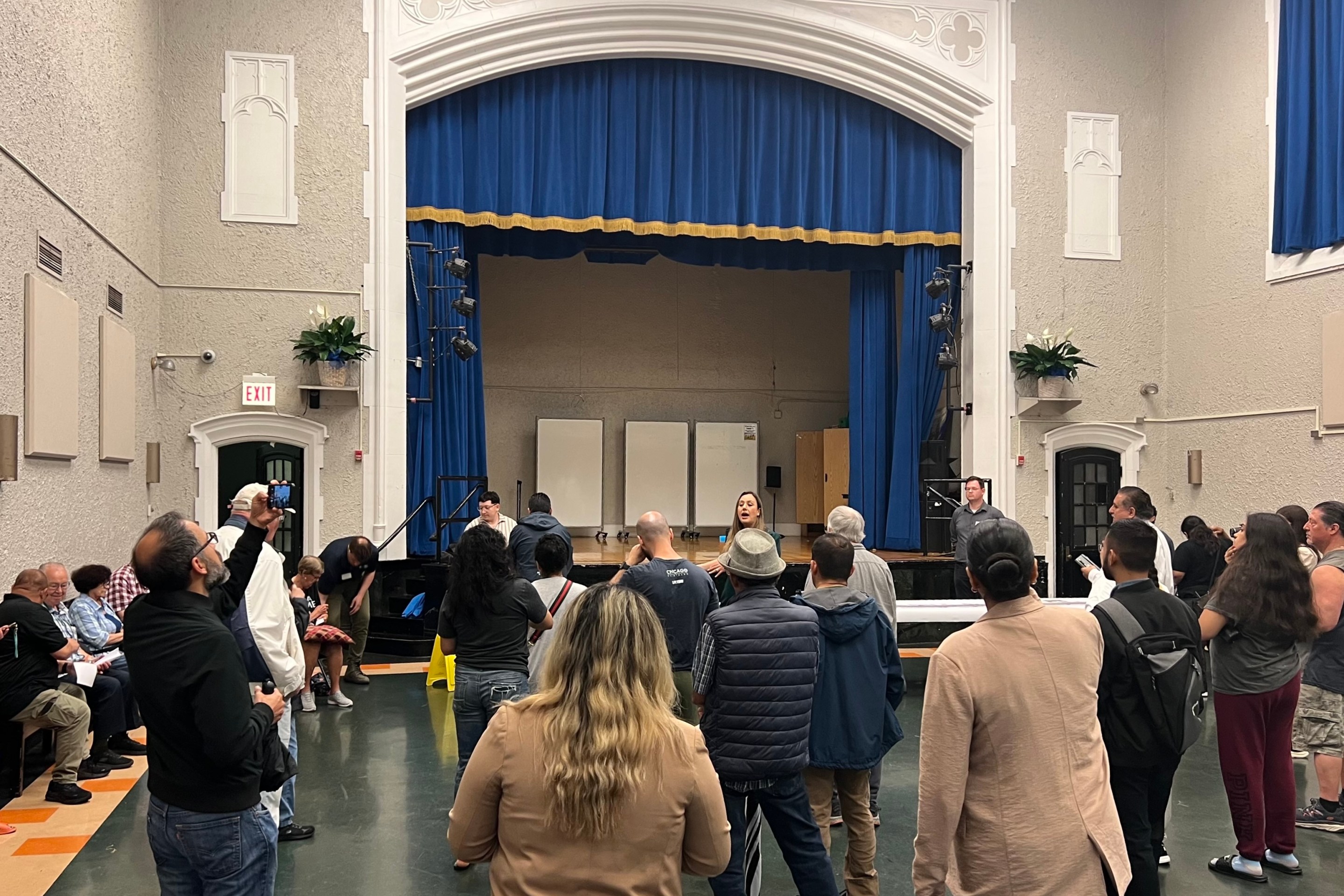
Earlier this month the Metropolitan Planning Council released a report that found Illinois needs to raise $43 billion in revenue over the next decade to get our roads, bridges, and transit lines in a state of good repair. They called for raising the state gas tax, which has stayed flat at 19 cents since 1991, as well as raising vehicle registration fees. That idea got a mixed reception from state politicians, some of whom viewed a gas tax hike as political Kryptonite.
Interestingly, Senate President John Cullerton came out with his own infrastructure funding plan this week. He proposed implementing a vehicle miles traveled tax as a way to deal with falling gas tax revenue due to the growing popularity of more fuel-efficient hybrid and electric cars. Cullerton noted that even so-called “green” cars inflict wear-and-tear on Illinois roads, so It’s necessary to develop a more effective way to tax them.
“If all the cars were electric, there would be no money for the roads,” Cullerton told the Daily Herald. “The Prius owners are the reason we need the bill,” he said.
There are a several ways the VMT tax could potentially be collected, ranging laughably simple to high-tech. The first would be have drivers simply agree to pay the 1.5-cent per year based on the assumption that they’ll drive $30,000 miles a year, for an annual total of $450. Of course, that would be a great deal for Illinoisans who drive much more than that each year, and a terrible for those who drive much less.
A second option would be to have citizens self-report their mileage on a paper form. What could go wrong?
A third alternative would be an electronic device that would hook up to your vehicle’s odometer to provide an accurate count of how many miles you drive. However it might not know when you’ve left the state or are driving on a private road and therefore arguably shouldn’t be taxed by the state for those miles.
The most high-tech solution would be a GPS-powered gadget that can accurately keep track of exactly how many miles, on what roads, you’ve driven. Of course, there’d be privacy issues. What guaranteed would there be that a technician wouldn’t blackmail you after they observed you driving to a hideaway with your secret paramour? But that’s merely a hypothetical at this point.
Cullerton acknowledged that his plan would favor the drivers of inefficient vehicles, who would likely pay proportionately less in VMT tax than they currently do in gas tax. Meanwhile, hybrid drivers would pay more, but Cullerton said they’d be paying less in fuel costs already, so things would more or less even out.
The bill would create a task force to look into the best way to implement the tax, which Cullerton said probably wouldn’t be collected for a few years, until all the technological and legal kinks are worked out.
Governor Rauner’s office is currently reviewing the legislation. It may go up for a vote in the near future.
The Metropolitan Planning Council recentl presented their own infrastructure funding bill, sponsored by state senator Heather Steans (7th) and they visited Springfield twice this week to lobby for the legislation. Their bill also calls for a VMT tax, so be implemented by 2025.
While it appear Cullerton is trying to get the VMT tax going sooner, he may have his work cut out for him, said MPC spokesman Ryan Griffith-Stegink. “All signs point to VMT being the future of revenue collection, bust this is something we should have gotten started on in the past,” he said. “In the time it takes to get this going, we feel it’s important to rely on our existing revenue strategies to start filling that $43 billion gap.”
Cullerton said he’d like to see Illinois become the first state to implement a VMT tax statewide, but we’re a little late to the party. California will be launching a 5,000-person VMT pilot this year called the California Road Charge, and they should have the results by the end of 2017. Meanwhile, Orgeon is already piloted three different methods of VMT tax collection as part of a program called OReGO.
Griffith-Stegink pointed out there will be some equity issues to sort out. For example, we don’t want to penalize people who have no choice but to drive many miles to work, or to run errands.
While MPC doesn’t expect to see a VMT tax implemented until three-to-five years from now, Griffith-Stegink credits Cullerton with getting the ball rolling. “It’s simply not a long-term strategy to tie infrastructure funding to a gas tax,” he said.
But in the meantime, he said, it makes since to work on raising the gas tax and vehicle registration fees now, and possibly combine one or both of these with a VMT tax in the future. “It’s not an either-or situation,” he said. “It’s an ‘and.’”





